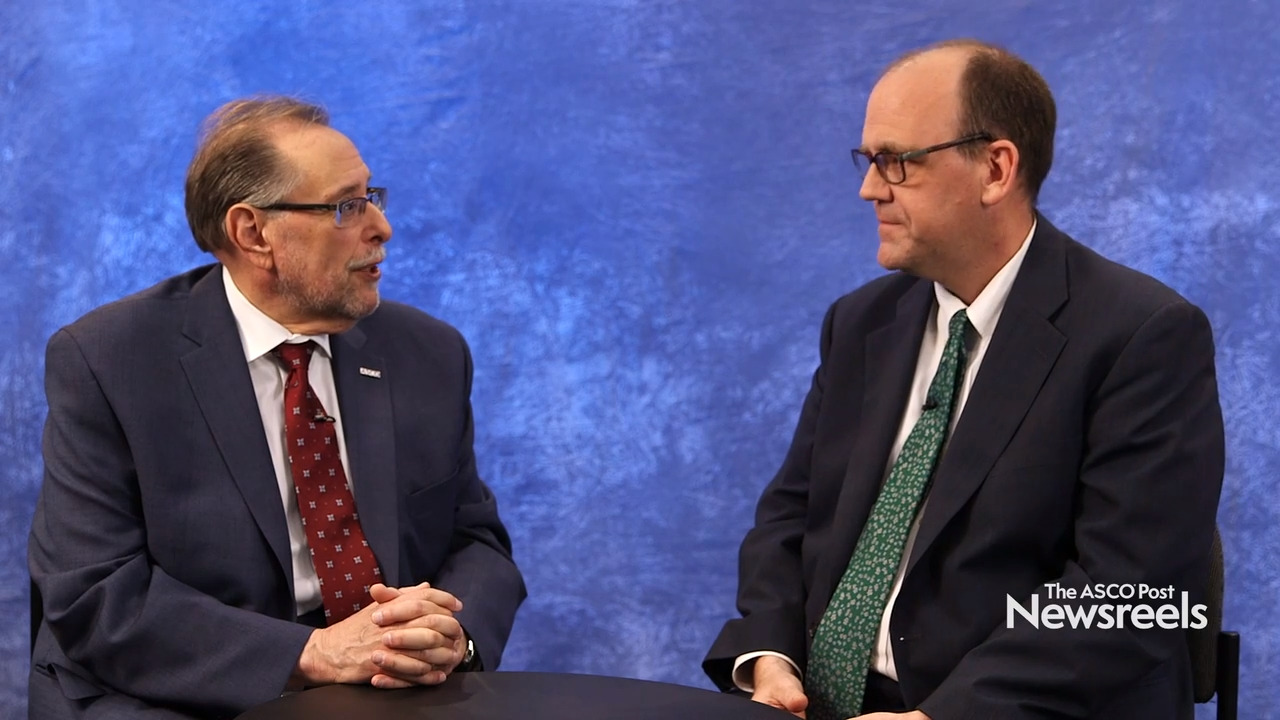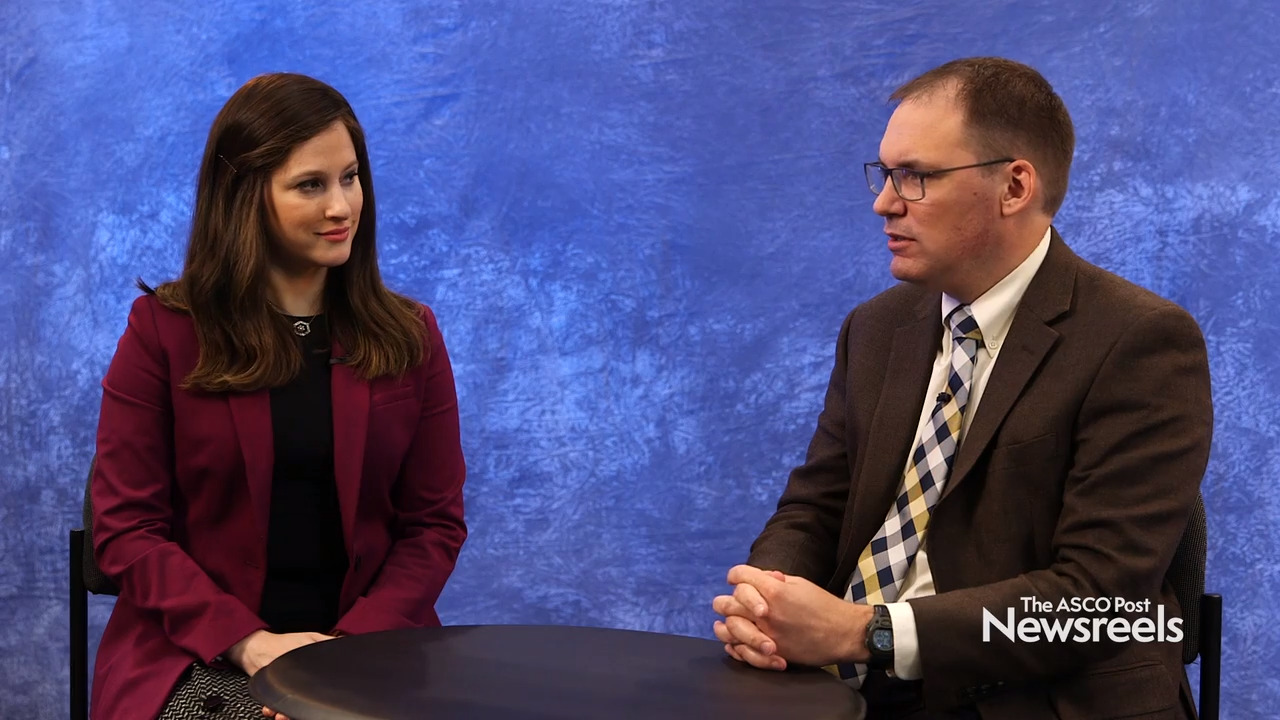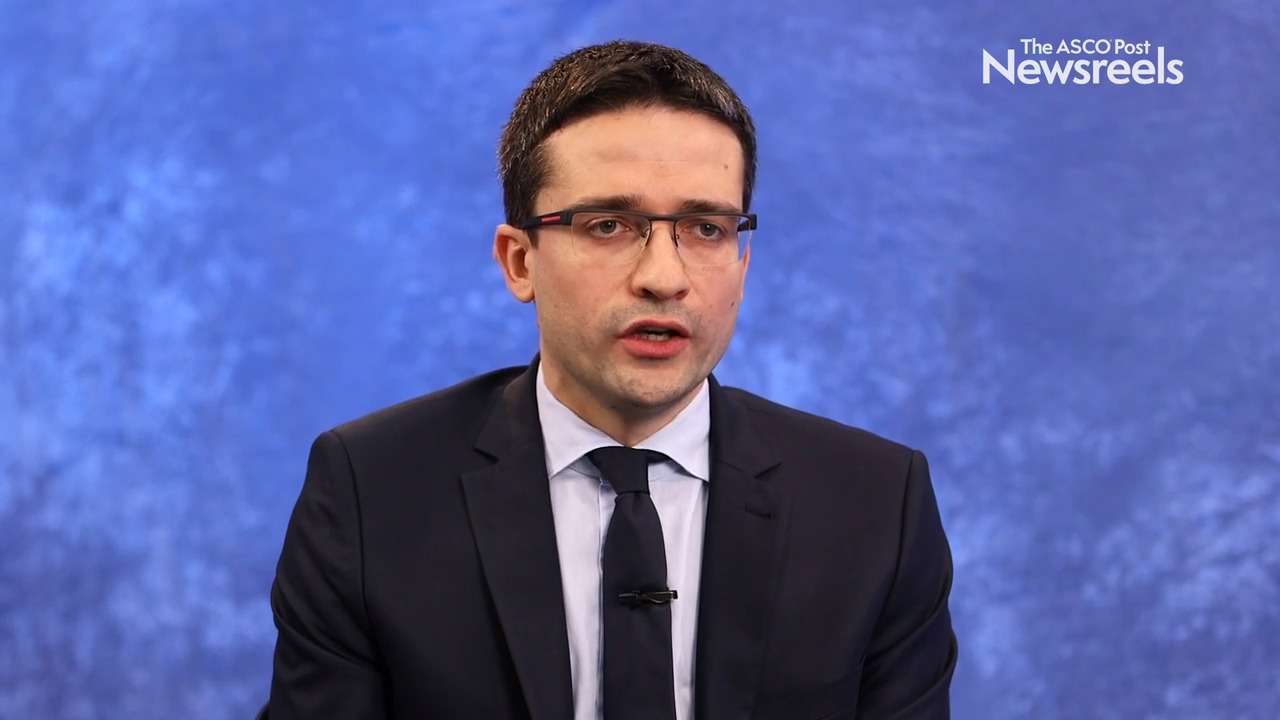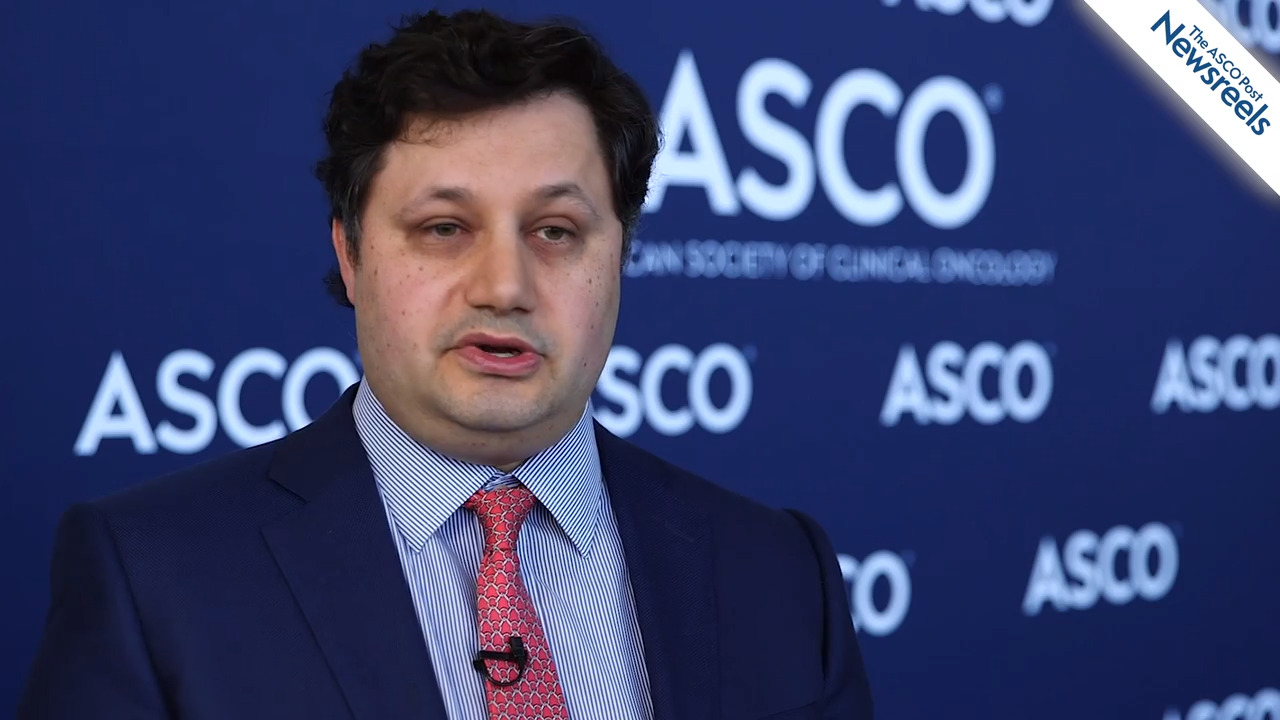Paul G. Richardson, MD, on Relapsed or Refractory Multiple Myeloma: Adding Isatuximab to Pomalidomide and Low-Dose Dexamethasone
2019 ASCO Annual Meeting
Paul G. Richardson, MD, of Dana-Farber Cancer Institute, discusses findings from the phase III ICARIA-MM trial showing that isatuximab, pomalidomide, and low-dose dexamethasone significantly improved progression-free survival and overall response vs pomalidomide and dexamethasone (Abstract 8004).
Richard L. Schilsky, MD, of ASCO, and R. Donald Harvey, PharmD, BCOP, of Winship Cancer Institute of Emory University, discuss their study findings that expanding the clinical trial eligibility criteria for patients with advanced NSCLC would enable nearly twice as many people to be considered for participation (Abstract LBA108).
Miriam Knoll, MD, and Zachery Reichert, MD, PhD, discuss the FORCE trial, which is examining whether radiation can create a more durable response to systemic therapy, and whether using newer, more sensitive imaging technologies can improve outcomes (Abstract TPS5096).
Matteo Lambertini, MD, PhD, of the University of Genova and Policlinico San Martino Hospital, discusses data from an international cohort study on counseling women with breast cancer who have a BRCA mutation about the safety of becoming pregnant once they complete treatment (Abstract 11506).
Brian C. Baumann, MD, of Washington University School of Medicine, discusses study findings suggesting postoperative radiotherapy may be an option for patients with locally advanced bladder cancer after radical cystectomy who are unable or unwilling to use adjuvant chemotherapy (Abstract 4507).
Daniel P. Petrylak, MD, of Yale School of Medicine, discusses study results on enfortumab vedotin monotherapy for locally advanced or metastatic urothelial cancer previously treated with platinum and immune checkpoint inhibitors (Abstract LBA4505).





